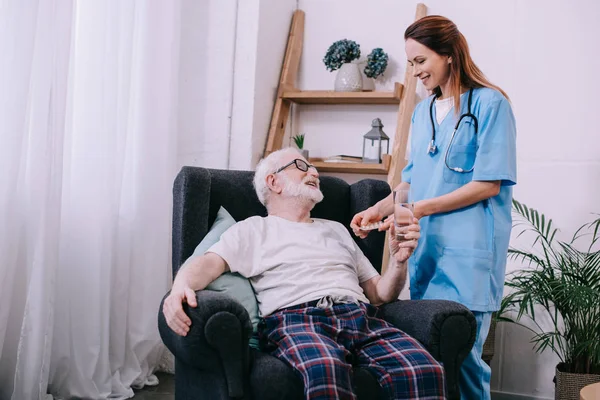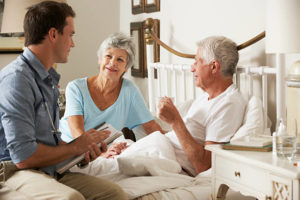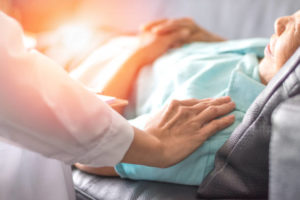
As we age, our skin loses elasticity, becomes thinner, and dries out. All of these make it easier to damage skin in the elderly through improper cleaning, pressure sores, and sweat; which can lead to sores and rashes.
When the elderly population has a reduction in mobility and spends the majority of their time in bed or sitting in a chair, it is very important for family caregivers to take the time to properly care for their older loved one’s skin.

Where to Check for Sores and Rashes in Elderly People
Rashes in elderly people can appear anywhere. Some of the most common areas to check include skin folds and the creases in armpits, elbows, knees, ankles, toes, and the groin area. If you see a rash, please contact your loved one’s medical provider.
Pressure sores/ulcers commonly occur in areas where a person connects with a piece of furniture he/she is laying or sitting on. The most common areas include the lower back, hit and buttock area, shoulders, back of their head and ears, elbows, inner knee, and heels.
Pressure sores/ulcers start out looking like a red or pink spot in the skin, but can progress to a wound that looks like the skin has been stripped away, even times they can go all the way to the bone underneath. As they form, the skin may be swollen, warmer, and can feel different than the surrounding skin (softer or firmer).

How to Prevent Pressure Sores and Skin Rashes in the Elderly
You can help to prevent pressure sores by carefully turning your loved one every two hours. Please turn your loved one with care to prevent skin tears or additional injuries. Ask your hospice nurse or aide to show you the proper way to turn a loved one! If you see signs of a pressure sore, please alert your medical provider or hospice nurse right away. They can properly advise treatment options.
To prevent rashes and other skin injuries, keep your loved one’s skin clean, moisturized, and dry.
When bathing a loved one, use a gentle soap without fragrance added. Wash their skin gently and pat them dry with a towel, instead of rubbing (which can cause more tears). Follow up with a gentle moisturizer. If their skin is extra dry, use a protective barrier cream like Aquaphor to help prevent tears and rashes.
Do not moisturize areas that are prone to excess moisture like skin folds and the groin area. Added moisture can cause rashes and infections. Rather, keep this area dry and use a powder to keep moisture at bay.
If your loved one is incontinent or has an accident, be sure to change them quickly into clean, dry clothes and briefs.
Another way to prevent rashes is to use a gentle and fragrance-free laundry detergent when washing clothes and bedsheets.
If you or a loved one is in need of hospice, palliative, or grief care, please call St. Anthony’s Hospice at (270) 826-2326 or make an online referral here.
